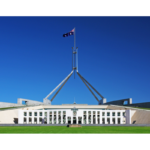Banks Accused of Facilitating Money Laundering

Australia’s big four banks have been allowing organised crime groups to launder up to $5 million a day, according to federal and state policing agencies.
Money laundering occurs when funds obtained through illegal activities such as drug trafficking is channelled into seemingly legal assets and enterprises such as businesses, property, gambling and trust funds in an attempt to make the money appear to be lawfully derived.
A briefing by Australian police agencies suggests that Westpac, ANZ, NAB and CBA have allowed themselves to be used to launder funds from drug activities.
Recent CBA controversy
Anti-money laundering agency Austrac’s decided last month to launch legal action against the Commonwealth Bank.
Austrac alleges the CBA has engaged in “serious and systemic non-compliance”, comprising more than 50,000 contraventions of the Anti-Money Laundering and Counter-Terrorism Financing Act whereby the CBA was too slow to report deposits of more than $10,000 in cash as required by the law.
Most of the alleged breaches involve the use of intelligent deposit machines (IDMs), a type of ATM that allows anonymous cash deposits. Austrac alleges more than $70 million was deposited into these machines by members of money-laundering syndicates, some of which was sent offshore.
53,506 transactions of more than $10,000 were deposited into the machines, with the CBA allegedly failing to report many of them in a timely manner nor report “suspicious patterns of activity”.
Austrac alleges that the CBA’s lack of oversight “exposed the Australian community to serious and ongoing financial crime.”
However, policing agencies claim the problem goes well beyond the CBA – with weak laws and questionable practices allegedly enabling criminal groups to spread deposits over a number of banking organisations.
Breach of corporate responsibility
Former National Coordinator of the Commonwealth Asset Confiscation Taskforce, Nick McTaggart, asserts that the failure of major banks and other financial institutions to carry out basic due diligence has likely placed the institutions in breach of “know your customer” requirements.
“Most financial institutions are just ticking the compliance boxes rather than doing the necessary due diligence,” Mr McTaggart states.
Failure to enforce regulations
Reserve Bank of Australia Governor, Philip Lowe, criticised the nonchalant attitude of banks towards regulatory compliance to a parliamentary inquiry, stating:
“Banks should not be doing money laundering and they should know who is operating the accounts that they open; they are very important laws and they need to be respected.”
Mr Lowe recommended greater accountability, both internally and through the courts.
“It’s very serious. We have these laws for a reason and they need to be enforced and people need to be held to account”, he said.
Lobbying power
ANZ bank has described Australia as a “place of choice” for money laundering due to the lack of political will to enact and implement effective regulations relating to local property and business purchases.
Australia’s anti-money laundering (AML) legislation relates to a range of organisations, including banks and money changers. International bodies including the Financial Action Task Force and Transparency International have slammed Australia’s lack of regulations requiring lawyers, real estate agents and accountants to report suspicious transactions. ANZ’s head of financial crime, Guy Boyd, echoed these sentiments, arguing the scope of the legislation should be extended well beyond banks and other financial institutions.
“There’s been probably a lack of political will and that’s probably been driven by some very vocal opposition from those industry sectors,” Mr Boyd stated.
Banking royal commission
The latest fiasco has renewed calls for a royal commission into the financial sector.
However, government minister Christopher Pyne has once against dismissed calls for such an inquiry, saying it would take “years and years to report and to do anything”.
“The last thing we need is a royal commission. We just need the police and … the officials who look after fraud to do their job”, Mr Pyne claimed.
This, of course, is in stark contrast to the government’s view towards the Royal Commission into union governance, initiated in 2014 by then PM Tony Abbott.
Opposition leader Bill Shorten says he supports a royal commission into banks, while Bankers Association chief Steve Munchenberg says any such move would force the banks to initiate an anti-mining tax style ad campaign.
Marketing consultant Toby Ralph says he has “no doubt the banks can run a campaign that will turn the political opportunism of a royal commission into an electoral nightmare for Labor”.
So it seems the banks are likely to keep getting away with regulatory breaches and other unlawful conduct.






